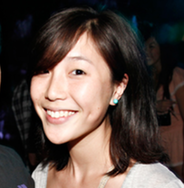EU foreign ministers discuss ending Syrian civil war
中国日报网 2013-02-19 10:06

European Union foreign ministers are wrestling with the divisive issue of whether to ease the arms embargo against Syria so military aid can be funneled to the rebels fighting President Bashar al-Assad.
An EU official said Britain is lobbying to ease the embargo so munitions could flow, but only to the rebels. The official spoke on condition of anonymity because he was not authorized to discuss closed-door deliberations.
But several foreign ministers said on their way into the meeting that they were opposed to that.
That view was bolstered by a new report on Monday by a UN-appointed panel that said Syria's civil war is becoming increasingly sectarian and the behavior of both sides is growing more and more radicalized. The report urged the international community to curb the supply of weapons, and anti-government forces to part with foreign fighters.
Several foreign ministers said they were placing their hopes on the mediation efforts of Lakhdar Brahimi, the joint UN-Arab League envoy to Syria.
The UN says nearly 70,000 people have been killed in Syria's conflict since March 2011.
"We are convinced that a lifting of the weapons embargo would not be reasonable," said German Foreign Minister Guido Westerwelle. "This would only lead to a new arms race in Syria. This would mean a further escalation of violence with many, many more victims."
The British Foreign and Commonwealth office said in a statement that its objective remains a diplomatic solution. But the statement did not explicitly confirm or deny that the UK wanted the embargo altered to get arms to the rebels.
"The UK believes international action so far has fallen short," it said. "In the absence of a diplomatic breakthrough, it is right that we continue to consider all options to protect civilians and to assist the National Coalition and other opposition groups opposed to extremism."
Questions:
1. Who are the rebels fighting?
2. What did the UN-appointed panel say about Syria’s civil war?
3. Who is Lakhdar Brahimi?
Answers:
1. President Bashar al-Assad.
2. It is becoming increasingly sectarian and the behavior of both sides is growing more and more radicalized.
3. The joint UN-Arab League envoy to Syria.
(中国日报网英语点津 Helen 编辑)

About the broadcaster:

Emily Cheng is an editor at China Daily. She was born in Sydney, Australia and graduated from the University of Sydney with a degree in Media, English Literature and Politics. She has worked in the media industry since starting university and this is the third time she has settled abroad - she interned with a magazine in Hong Kong 2007 and studied at the University of Leeds in 2009.

















 英语点津微信
英语点津微信 双语小程序
双语小程序